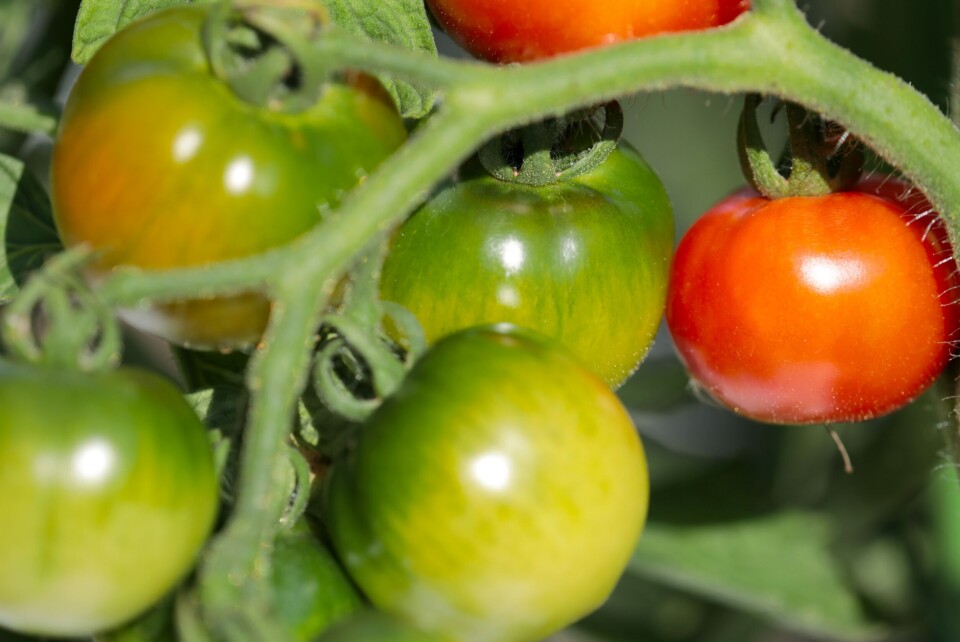-
Which fruits, vegetables and fish are in season in France this April?
Strawberry season begins, compensating for end of winter vegetables
-
Why are drivers in France increasingly getting speeding fines without being ‘flashed’?
Here is why you may have received an unexpected fine in the post
-
Marine Le Pen appeal decision should be given in summer 2026, says court
It comes as the RN leader continues to maintain her ‘innocence’ and right-wing politicians have called her conviction ‘an attack on democracy’
French farmer grows crops without water, fertiliser or pesticide
By burying organic matter underground and turning the earth in winter to trap moisture, he gives his fruit and vegetables the tools to survive

A French market gardener with a parcel of land just outside Paris has shared how he manages to cultivate his fruit and vegetables without using irrigation, fertilisers or pesticides.
Marc Mascetti’s 17-hectare clay soil plot in Marcoussis (Essonne) is – like almost everywhere in France – very dry as a result of the drought affecting the whole country.
Read more: French homes subject to drought rule checks
Read more: Vigilance, alert, crisis: what France’s four drought warnings mean
However, he has still succeeded in growing pumpkins, beans, tomatoes, onions and more, telling Franceinfo: “They have had drought and [three] heatwaves and they are not dead!”
Mr Mascetti adds that vegetables are “98% water”, and the secret is to nourish them with the moisture found below the surface-level soil.
“It’s dry on the surface, but after two or three centimetres you find clumps of earth. This means that there is freshness, moisture in my soil.
“We have been here for three generations, without water,” he said, adding that he has dug down to a depth of 115 metres and still not found any groundwater.
Therefore, Mr Mascetti begins preparing the earth in winter, allowing weeds to grow, mixing them with organic waste from his harvest and burying the blend underground to be consumed by worms.
“Microorganisms will transform everything that I buried into fertiliser and moist organic matter, which the plant can use,” he said.
Then, when there is some rainfall, he works to turn over the soil so that the surface moisture is trapped underground.
“We must try to make [crops] understand that we are not going to give them anything to drink from the surface and force them to form a root system which goes deep underground.”
Mr Mascetti also told Le Parisien: “We have given [plants] fertilisers, water, pesticides [...] we have made them lazy, not brave.
“When it is thirsty you give it water, when it is hungry you feed it, when it is ill you care for it, when it is attacked by insects you kill them. [But] a vegetable should know how to cope on its own.
“A vegetable is a living being: the more you help it the lazier you make it. The less you help it the more courageous you make it.
“As soon as you give water to plants you dilute the taste. It’s like a syrup, a grenadine: if you add very little water it is very sugary, if you add lots of water it is not sugary.
“A vegetable which is not given water will remain small but will be concentrated. It will be nourishing. It is better to produce little but well than to produce a lot and throw away half of it.”
Not a universal solution
Mr Mascetti noted that his methods would not work everywhere in France, especially not in the south or where the soil is sandier.
“The problem is that [the water would] descend too quickly, while in ploughed clay the water does not get through.
“We know and we do it because it’s our land, but every cultivator must know their land.”
Mr Mascetti also suggested that even in sandy soils, farmers should think more about how much assistance they give their crops.
“For more than 40 years now we have known that the climate will change, that it will get hotter and hotter, and we are not trying to find a solution,” he said.
“The only way is to understand how nature can develop without water, and it’s our responsibility to understand, pass it on and to repeat the process each year.
Related articles
Grape harvest begins earlier than ever in south France due to heat
Michelin star chef makes Loire France’s sustainable eating capital
France one of EU’s worst culprits for pesticide-grown fruit and veg
























